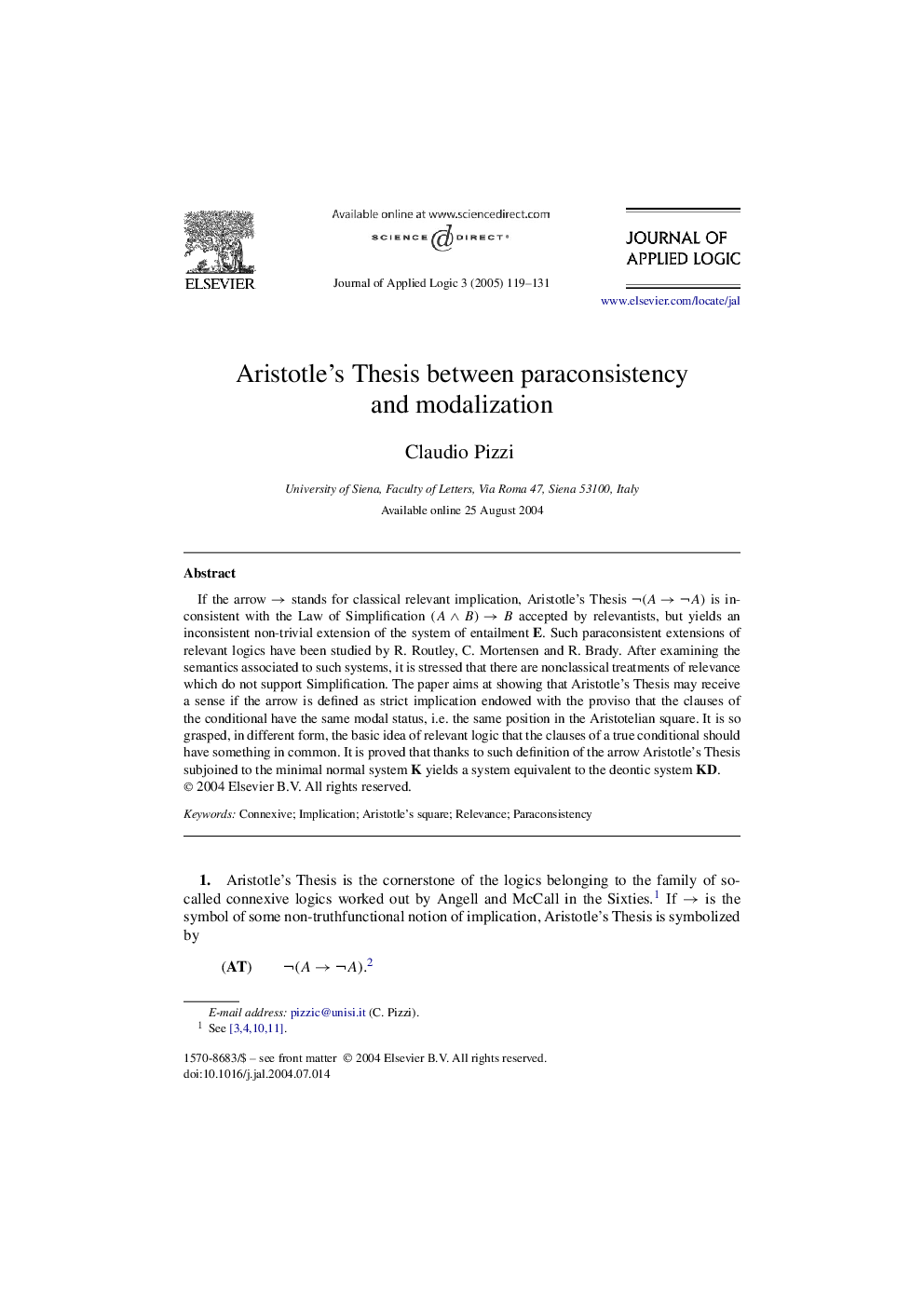| Article ID | Journal | Published Year | Pages | File Type |
|---|---|---|---|---|
| 9517931 | Journal of Applied Logic | 2005 | 13 Pages |
Abstract
If the arrow â stands for classical relevant implication, Aristotle's Thesis ¬(Aâ¬A) is inconsistent with the Law of Simplification (Aâ§B)âB accepted by relevantists, but yields an inconsistent non-trivial extension of the system of entailment E. Such paraconsistent extensions of relevant logics have been studied by R. Routley, C. Mortensen and R. Brady. After examining the semantics associated to such systems, it is stressed that there are nonclassical treatments of relevance which do not support Simplification. The paper aims at showing that Aristotle's Thesis may receive a sense if the arrow is defined as strict implication endowed with the proviso that the clauses of the conditional have the same modal status, i.e. the same position in the Aristotelian square. It is so grasped, in different form, the basic idea of relevant logic that the clauses of a true conditional should have something in common. It is proved that thanks to such definition of the arrow Aristotle's Thesis subjoined to the minimal normal system K yields a system equivalent to the deontic system KD.
Keywords
Related Topics
Physical Sciences and Engineering
Mathematics
Logic
Authors
Claudio Pizzi,
